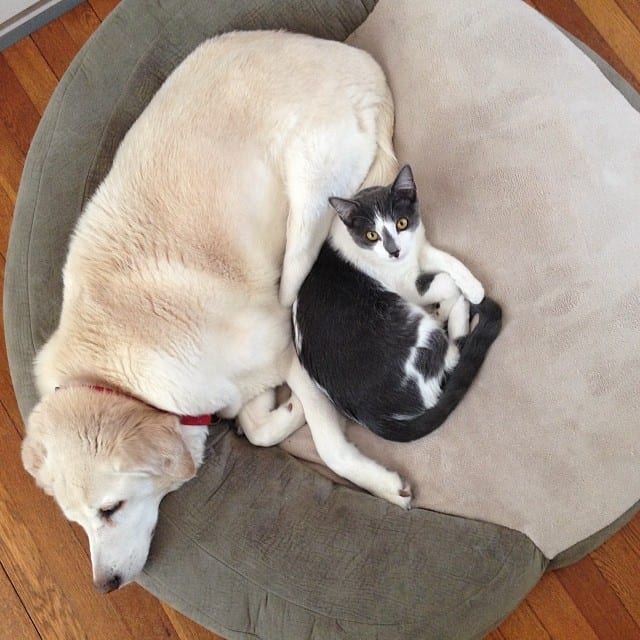The Joy of the Right Pet

This post about how welcoming a new pet into your home is always a joyous occasion is a guest post. Puppies, kittens or even iguanas add play and companionship to any family. However, the success of that introduction depends upon taking a few steps to ensure comfort not only for your family, but also for your new pet. Following three easy guidelines will go a long way to building a positive life-long relationship.
Choosing the Right Pet
There are a number of important factors to finding the right pet for your family. The first thing to consider is the time you will need to devote to your new pet. Do the adults in the house work? Are the children old enough to take some responsibility, like feeding or walking the new pet? For instance, if both parents are away during the day, a new puppy will not be getting the interaction, training and exercise necessary to develop into a good family pet. On the other hand, a cat does not need that level of attention, and may work well in a working household. Other low maintenance pets like fish or turtles may work well to introduce small children to the responsibility of pet ownership without adding tasks to parents’ already busy schedules. Also, consider your living circumstances. For instance, a Great Dane is fine on a 5-acre lot but miserable in an apartment. Choose the pet that best fits your family’s level of activity and space.
Make the Right Preparations
While toys are important, it is critical to have the necessary materials before your pet comes home. You can often find things like food and water bowls, leads, harnesses and collars, and high-quality pet foodat retail outlets. Additionally, you can find discounts and savings at MyCoupons or others online or in the paper, allowing you to save a bit on these necessary purchases. If you are going to have your dog spend any time outside, you must provide adequate shelter, which means buying a doghouse and providing a fence to keep them safe. Cats need a quiet private space where you can set up a clean litter box and a scratching post so they don’t shred your furniture. Exotic pets like chameleons, iguanas and some tropical birds require carefully controlled conditions and special foods. You should research these animals first to understand what is necessary to keep them healthy.
Choose a Vet and Get a Health Check
Young animals will need to have their shot regimen begin immediately. For puppies and kittens, this means a commitment to a 12 to 16 week course of vaccinations. Older pets will need to have rabies boosters, tags and often a license. Even if you adopt your pet from the ASPCA or the local shelter where rudimentary care has been provided, you ought to get a health check before you bring them home. Often shelters only vaccinate against rabies, so you will need to find out what else your pet needs, including Parvo shots for puppies, and Feline Leukemia boosters for kittens. Some shelters are rife with conditions like kennel cough or parasites, and so it is important to get these problems seen to immediately. Ask your friends with pets for recommendations, check out reviews online on sites like Angie’s List, and make an office visit before you choose the vet. These steps will ensure that you choose the clinic that best meets your needs.
Pets add quality to life, and provide companionship and joy to every member of the family. Beginning that relationship on the right footing by following these guidelines will insure a long and healthy life for your pet.
Veronica Lee says
How true! I’m not a dog person but our family looooooooves guinea pigs!! And they are just perfect for our 1208 sq ft condo.